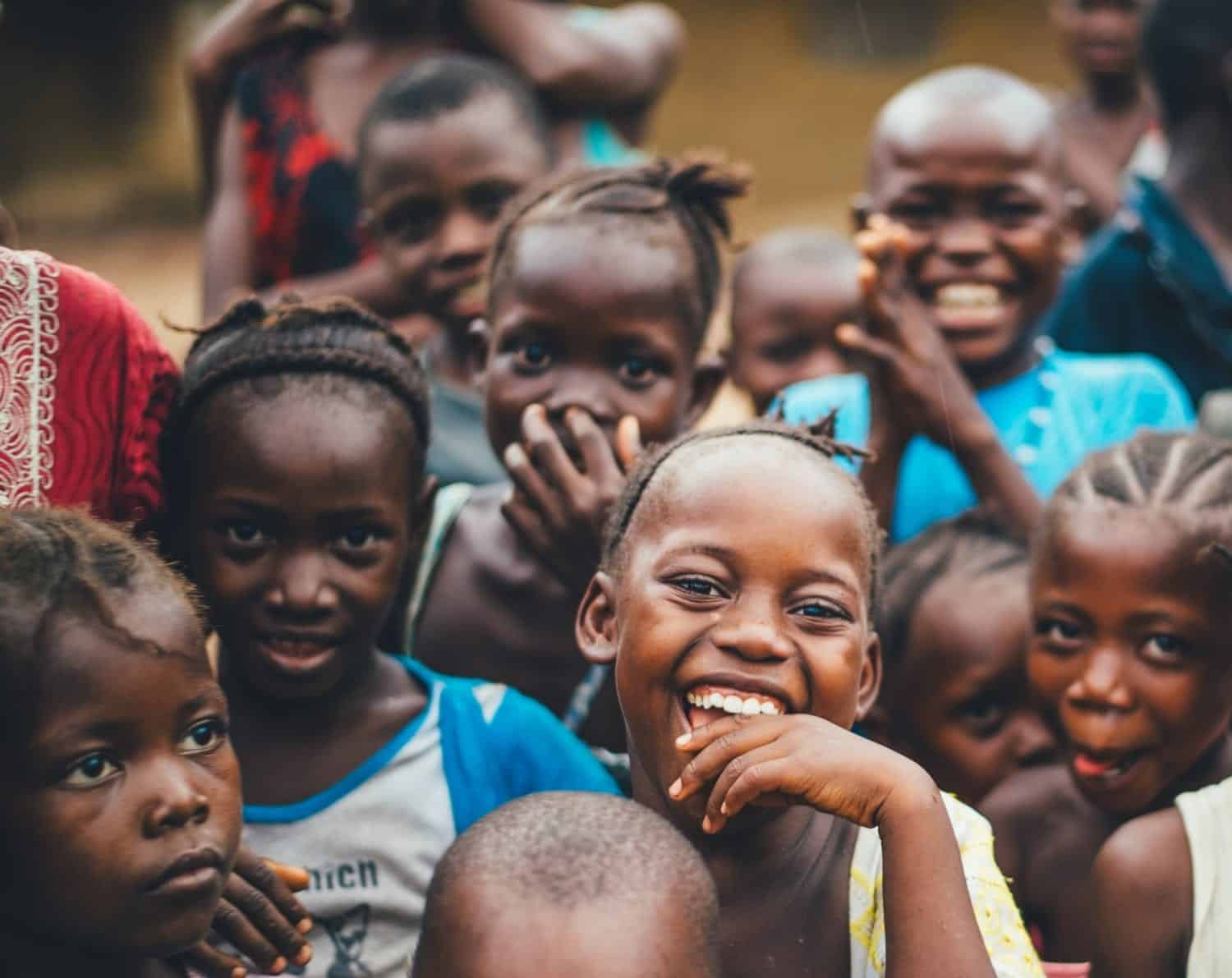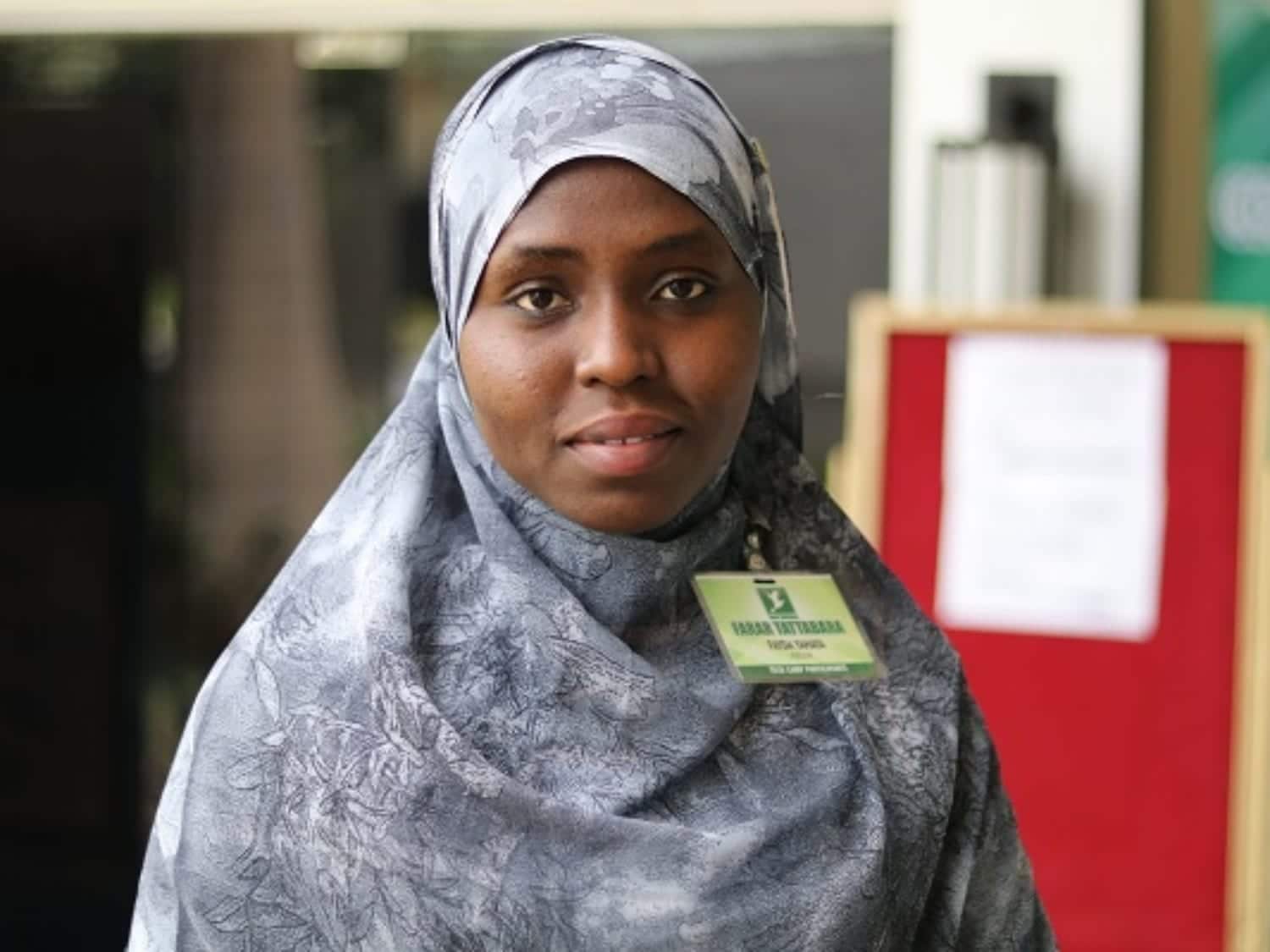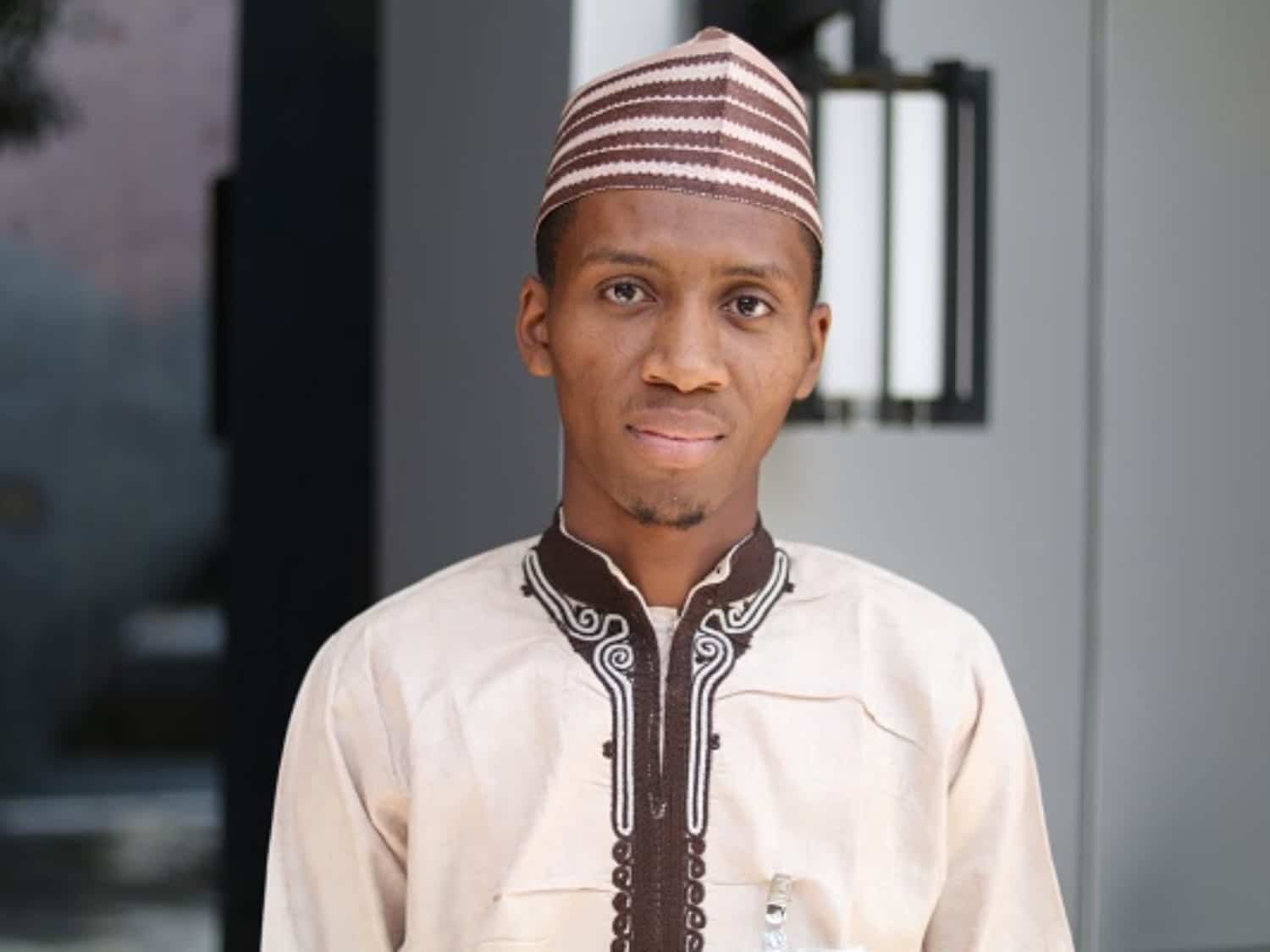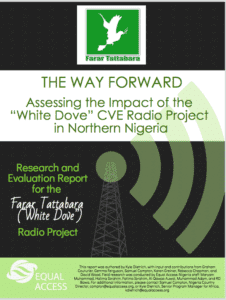

Finding Your Role Model in a Radio Talk Show
With a reach of over 15 million listeners, the three White Dove radio programs are empowering a new generation of role models and informed messengers actively working to improve the lives of their families and communities in Northern Nigeria.
A Project of —
CVE Messaging Center - White Dove (Farar Tattabara)

In a remote part of Northern Nigeria the wind kicks up rust-colored dust and young boys cruise by on keke napeps (tri-motorcycles) as my team and I depart to interview community members about what they think of our White Dove (Farar Tattabara) radio series. In spite of the heat, we’re energized, laden with audio recorders and notepads. We wind down Maiduguri’s streets driven by curiosity of how our series with episodes about youth empowerment, entrepreneurship, education, peace, and tolerance have been received.
There are no people we look up to. But now with your Ina Mafita program, we have hope and are starting to see ourselves as the solution,” said a young man from Borno State who was once a part of Boko Haram and now volunteers for a community self-defense task force.”
Nigeria is home to the most out of school children in the world, 10.5 million, and while much of the South is flourishing from the riches of oil, access to education and industry, the North is a different world all together. Access to positive information and ideas about tolerance are hard to come by and historically the Tsangaya school system focuses on conservative religious education vs. secular subjects, which have been deemed by Boko Haram, the brutal insurgent group that kidnapped thousands of school children, including the Chibok girls in 2014, as “Western education.” Communities are terrorized, drugs are easy to come by, jobs are hard to find and access to positive social movements nearly impossible, leaving youth frustrated and at risk.
But that’s not the only story of the North. It’s also a place where youth are eager for opportunity and hungry for hope. Given the power vacuum and lack of adequate police enforcement, young people have mobilized to protect their communities by forming self-defense groups against Boko Haram. Instead of waiting for formal institutions to be formed, young people have launched mentorship circles to support their at-risk peers. The North is a place where the skill of hustling inherent in daily life, with a little bit of support and information, can give way to entrepreneurial fervor and leadership.


As we interviewed one person after the other we found that not only do people like the radio programs and relate to characters Kassi, Bala, Kyauta and Adama, listeners are finding inspiration in the ambitions of these fictional characters and starting small businesses. When we asked if people changed their behavior or attitude as a result of listening to our shows – a whopping 90 percent reported a positive change.
Like many countries in the world, young people who engage in violence or drugs are shunned or looked down upon, but just like in the developed world these young people have the energy and capability to shift their attention to positive engagement. We compared our interview and digital poll data with our original baseline survey from 2016 and found that attitudes about young people had softened due to the program. Listeners commented that the programs helped them to recognize young people’s value, have a better understanding of their struggles with jobs and resources and see them as potential contributors rather than a danger to society.
Similarly, the radio program about religious education and Almajiri children helped listeners understand the crippling challenges kids who attend religious boarding schools, called Tsangaya schools, face. They learned that many of these children are forced to beg on the streets because they are dropped off at school without any funds for books, food, or clothing. Parents also reported keeping in closer touch with their children in Tsangaya schools, after learning of the importance of parental support, bonding, and guidance from our programs. This reduces the sense of isolation and abandonment felt specifically by young boys who can fall prey to violent extremist organizations and rhetoric.
When the team and I completed the two weeks of research we were inspired and energized by the tremendous impact after only one year. With a reach of over 15 million listeners, the three White Dove radio programs are empowering a new generation of role models and informed messengers actively working to improve the lives of their families, friends, and communities.
Read more about this report on our Research & Resources section.
* This article was originally written and published on Medium by Kyle Dietrich, Senior Program Manager, Equal Access International, and Charity Tooze, Director of Partnerships & Communications, Equal Access International.
